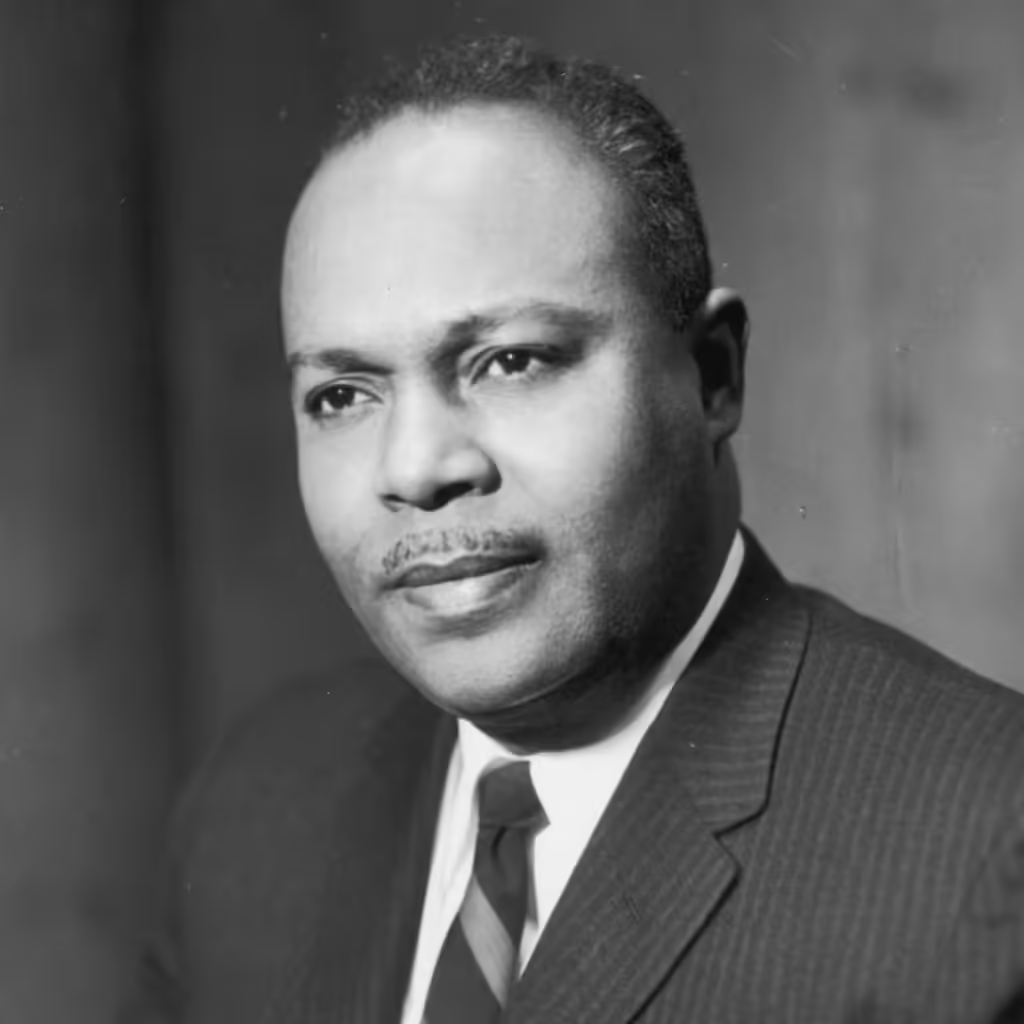
Table of Contents
Who Was James Farmer?
James Farmer was a distinguished college debater who became a pivotal figure in the American Civil Rights Movement as the leader of the Congress for Racial Equality (CORE). Under his guidance, CORE emerged as one of the foremost organizations advocating for civil rights. A strong proponent of Mahatma Gandhi’s philosophy of nonviolence, Farmer played a crucial role in organizing the Freedom Rides, a campaign that aimed to desegregate interstate travel in the United States.
Background and Education
Born on January 12, 1920, in Marshall, Texas, James Leonard Farmer Jr. grew up in an environment rich in education and social consciousness. His mother was a teacher, and his father, a minister, was the first African American in Texas to earn a doctorate. An exceptional student, Farmer enrolled at Wiley College at the age of 14 after skipping several grades. During his time there, he excelled in debate, showcasing his exceptional oratory skills, which would later gain national recognition. His life as a renowned college debater was depicted in the film The Great Debaters, directed by Denzel Washington, with Farmer portrayed by Denzel Whitaker.
Studies Gandhi’s Path
Initially interested in medicine, Farmer later considered following his father’s footsteps into the ministry, ultimately earning a divinity degree from Howard University in 1941. While at Howard, he became acquainted with the teachings of Mahatma Gandhi and adopted his principles of nonviolent civil resistance, applying them to the struggle for racial desegregation in the United States.
During World War II, Farmer served as a conscientious objector and became involved with the Fellowship of Reconciliation. Residing in Chicago, he also worked as a television screenwriter and magazine writer. Farmer was married to Winnie Christie from 1945 to 1946, and in 1949, he married Lula A. Petersen, with whom he had two children.
Founding CORE
Driven by a commitment to racial equality, Farmer and his colleague George Houser, along with a diverse group of associates, organized a sit-in at a Chicago restaurant in 1942 to challenge segregation. This effort led to the formation of the Committee of Racial Equality, which later evolved into the Congress of Racial Equality. With Farmer elected as the national chairman, CORE initially attracted a predominantly white membership based in the North, though it would soon become significantly involved in the South.
After a period away from the organization, Farmer was elected national director of CORE in February 1961, positioning him among the leading African American figures of the era alongside prominent leaders like Dr. Martin Luther King Jr. and Roy Wilkins.
The Freedom Rides
Farmer spearheaded the Freedom Rides to confront segregation in interstate bus travel, a practice that had been deemed illegal since 1946. The rides involved a multiracial group of men and women who traveled through Southern states to challenge discriminatory practices. The inaugural ride commenced in May 1961, during which one bus was firebombed in Alabama after traveling through several states. The brutality faced by the Freedom Riders, including severe beatings and mass arrests, was widely broadcast, exposing the harsh realities of racism to a global audience. In September 1961, the Interstate Commerce Commission, urged by Attorney General Robert Kennedy, ruled that segregation in Southern public transportation was illegal.
CORE continued its activism in both the North and South, with Farmer facing personal danger, including imprisonment, and witnessing the murder of three CORE-affiliated workers in Mississippi in 1964. Eventually, he resigned from his position as the leader of CORE in the mid-1960s. He published his book Freedom—When? in 1966 and later taught at Lincoln University. In 1968, he ran unsuccessfully for Congress on the Republican ticket against Democrat Shirley Chisholm and subsequently worked in President Richard Nixon’s administration, though he left in frustration over the administration’s policies.
Medal of Freedom
Throughout his life, Farmer received numerous accolades for his contributions to civil rights, including the publication of his acclaimed autobiography Lay Bare the Heart in 1985. In 1998, he was awarded the Presidential Medal of Freedom by President Bill Clinton. In 2011, PBS’s American Experience aired a documentary titled Freedom Riders, highlighting the efforts of CORE during the Civil Rights Movement.
Death
In his later years, Farmer struggled with diabetes and passed away on July 9, 1999, in Fredericksburg, Virginia, at the age of 79. His legacy as a champion for civil rights and nonviolence continues to inspire future generations.
